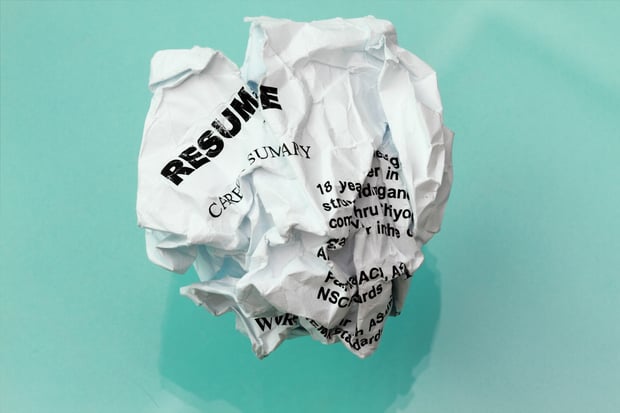
Many job hunters regard their resume as the most important tool in their job search. While it is true a resume is a useful tool, its purpose is all too often misunderstood by job hunters. Below are five common misconceptions about resumes that might hinder your job search.
Myth: You need a resume to get a job.
The best resume in the world will NEVER get you a job. It MAY get you an interview for a job, but then the rest is up to your face-to-face interpersonal skills to win an offer. In truth, your resume can lose you more opportunities than it gets you since recruiters use them as a way of weeding out who they’ll interview and who they won’t.
For example, if the description of the job you’re applying for calls for three to five years' experience and your resume shows that you’ve spent six years in a similar position, that extra year could be enough to eliminate you from consideration. So could the college you did or did not attend, the company you did or did not work for, etc. Sad but true. You can solve this dilemma by creating a non-traditional format that showcases why your experience is a perfect fit for the job. Even better, network into an interview and submit your resume to the hiring manager when you come in for your first interview.
Myth: Your resume should cover your career history in detail.
Another misconception that leads to missed opportunities. Your resume isn’t a complete biography and shouldn’t be a confession. (Please do NOT tell why you changed jobs on your resume. It’s often depressing and brands you as a loser before you even interview.) A resume is basically a sell sheet that tells why you’re a great fit for the job you’re applying for. That’s it. So nothing should be on your resume unless it relates directly to the job you’re going after.
But suppose you’re an ex-Account Executive who spent the last five years running a McDonald’s franchise and now wants to work with an ad agency again. Include your franchise experience but write about it in terms that make sense for an account executive by describing the great marketing and PR efforts you put together. Just remember, a resume is always as much about the job you’re aiming for as it is about the ones you’ve done before.
Myth: Resumes should start with an objective stating what you’re looking for.
Unless your objective is to work for nothing, this information is probably of little or no interest to the hiring manager. Obviously, you’re looking for the kind of job they have to fill. Instead of wasting space on an objective, put the job title you’re applying for directly under your name at the top of the resume. This not only indicates your objective but also creates an immediate connection between you and the position. If the job title is a grade higher (or just different) than those you’ve held before, so what? If you didn’t think you could do the job why are you submitting a resume in the first place?
Myth: Resumes should be written in chronological order – last job first.
This tradition harks back to the days when people stayed in jobs an average of seven to ten years before moving on to another company in the same industry. Today the average job lasts one to three years and whole industries come and go almost as quickly. If your work history falls within traditional guidelines, then by all means, use a chronological format. But if you’ve been downsized, merged, purged, etc. try an innovative layout that puts the good stuff first.
Using the job description, list the specific requirements the hiring manager is looking for. Then under those requirements, give detailed examples of your experience which clearly demonstrate how you meet them. In the course of these vignettes you can and should give the name of the companies you worked for and (most importantly!) the success of your efforts for these employers. On the second page of your resume you can still observe the chronological tradition by listing the companies you worked for, the positions you held, and the years you worked at each place along with your education, professional affiliations, and awards, if any.
Myth: A professionally-written resume is more impressive than one you write yourself.
Far be it from me (a professional writer and career coach) to deny the value of writing talent and career coaching expertise, but unless a resume writer has ESP, I believe no one can describe your experience as well as you can. Of course, you may need some coaching about the format, what talents to highlight, and which accomplishments to feature – but ultimately the best resumes are those that directly connect your experience to the particular requirements of the job.
You can also prepare a “generic” resume for an informational interview but even this should be based in reality. Start by finding detailed descriptions of five jobs that you think are ideal for you. Then find the requirements that these descriptions seem to have in common such as “innovative entrepreneur,” or “team player who works well with people in different divisions.” Construct your generic resume so it features accomplishments that answer these common requirements.
And one last thing… never, EVER, refer to yourself in the 3rd person when writing your resume!